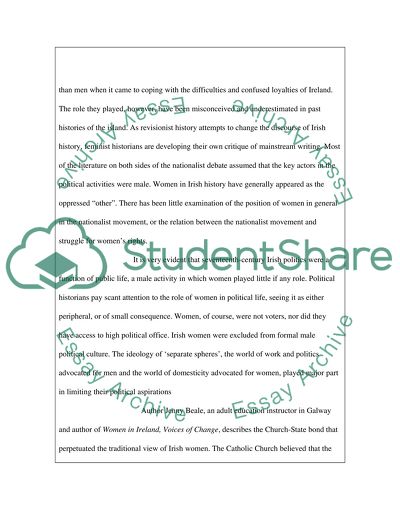Cite this document
(“Why Were Women In Ireland Excluded From The Public Exercise Of Power Essay”, n.d.)
Retrieved de https://studentshare.org/gender-sexual-studies/1539870-why-were-women-in-ireland-excluded-from-the-public-exercise-of-power-over-men
Retrieved de https://studentshare.org/gender-sexual-studies/1539870-why-were-women-in-ireland-excluded-from-the-public-exercise-of-power-over-men
(Why Were Women In Ireland Excluded From The Public Exercise Of Power Essay)
https://studentshare.org/gender-sexual-studies/1539870-why-were-women-in-ireland-excluded-from-the-public-exercise-of-power-over-men.
https://studentshare.org/gender-sexual-studies/1539870-why-were-women-in-ireland-excluded-from-the-public-exercise-of-power-over-men.
“Why Were Women In Ireland Excluded From The Public Exercise Of Power Essay”, n.d. https://studentshare.org/gender-sexual-studies/1539870-why-were-women-in-ireland-excluded-from-the-public-exercise-of-power-over-men.


